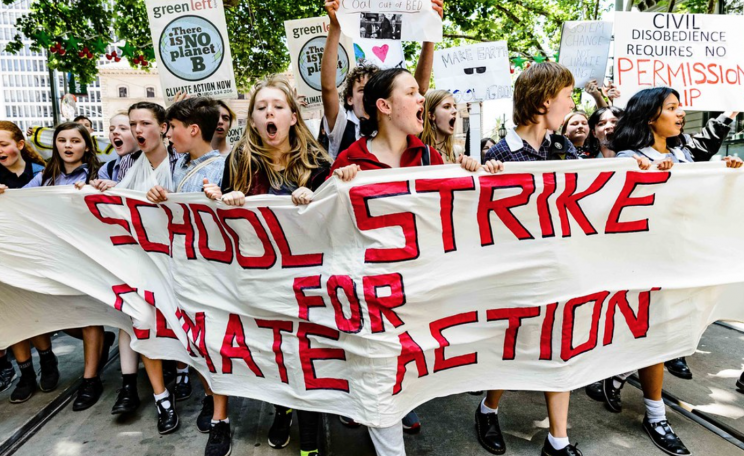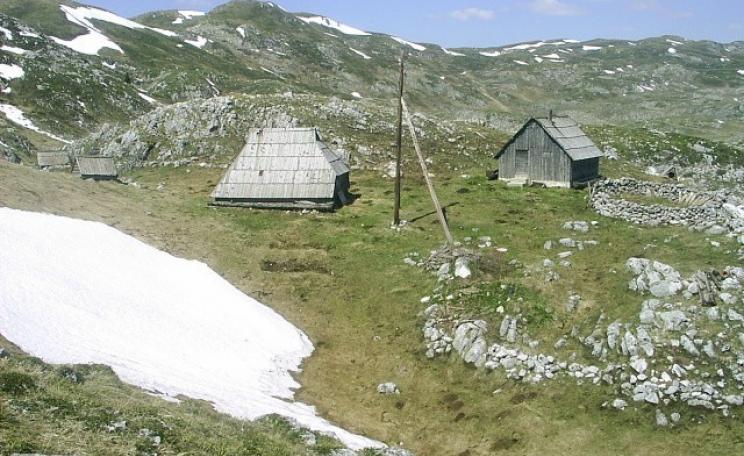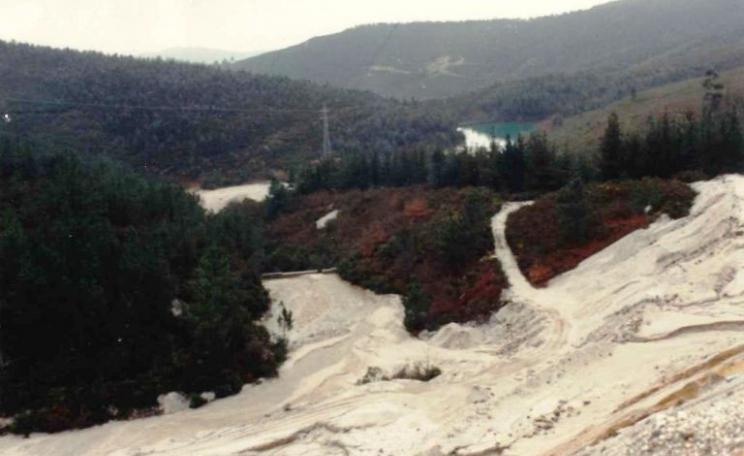=
Loughborough University have responded to a non-violent chalk protest by fining a student who was involved a total of £430.
Loughborough People & Planet, a student pressure group, had written messages in a water-soluble chalk spray on campus to protest the university’s ties to fossil fuel financiers Barclays.
The campaigners stated that they felt this step was necessary as the university had refused to speak with them.
Disciplinary action
The campaign to boycott Barclays was started in response to the bank’s investments in fossil fuel companies and projects, which totalled more than $85bn between 2016 and 2018.
The students approached the university via email at the start of the year requesting an opportunity to talk about this campaign. This request was dismissed by the university and the group have since resorted to a non-violent direct action approach to get their voices heard.
The university has attempted to silence the group through threats of disciplinary action and now through financial sanctions.
This follows a similar pattern of behaviour from the last year when the group campaigned for their university to divest from fossil fuels. The group eventually won the campaign but were threatened with disciplinary action all year.
A spokesperson for the group said: “We are being ignored by a university that refuses to talk to us. When we take peaceful protest action we get fined. This is despite us not causing any lasting damage to the university property. It just seems like they want us to be quiet and go away”.
Free speech
The group used a water-soluble chalk solution and say they took precautions to leave no permanent damage. According to the group all marks come out with enough water.
The university mistook the substance for paint and before consulting the group called in external contractors to clean the messages, costing £430. The students have been blamed by the university for not making them aware that the messages were in chalk and are being charged for the cost of the external contractors that did not need to be hired.
Throughout their disciplinary hearing, the group have said they were told that the university were determined to ensure that the campus did not become a political space. Part of how the university intends to make this happen appears to be shutting down alternative views like this on campus as much as possible.
The university appears to be flouting established commitments by UK universities to ensure that peaceful protest is protected.
Indeed, the guidance of the Equality and Human Rights Commission in relation to universities states that everyone has the right to free speech within the law and that universities should seek to widen public debates and never to narrow them. It also states that peaceful protest is a protected form of freedom of expression.
Repeal
The group’s spokesperson added: “The university have tried again and again to kill this campaign, not through discussion or debate, but through suppression and disciplinaries. It’s extremely concerning for everybody that the university is fining students for legitimate political protests but we won’t be going away anytime soon.”
The group are calling on Loughborough University to repeal their decision and to not sanction the group. In the meantime their campaign will continue and they have every intention of planning over the summer months for more peaceful protests in the next academic year.
The group's spokesperson said: “We intend to win this campaign, no matter how long it takes and no matter how hard the university makes it”. You can donate to the group’s fundraiser to help cover the fines here.
A Loughborough University spokesperson said: "In March four individuals used spray cans to make markings across a focal point of the University. This caused extensive damage to stonework in the area to the extent that significant discoloration is still visible today. The content of the spray cans was later found to be a chalk-based solution and professional cleaning was needed to remove the damage. There was no fine but the cost of the professional cleaning was passed onto one of the individuals identified."
This Author
Marianne Brooker is The Ecologist's content editor. This article is based on a press release from People and Planet.







